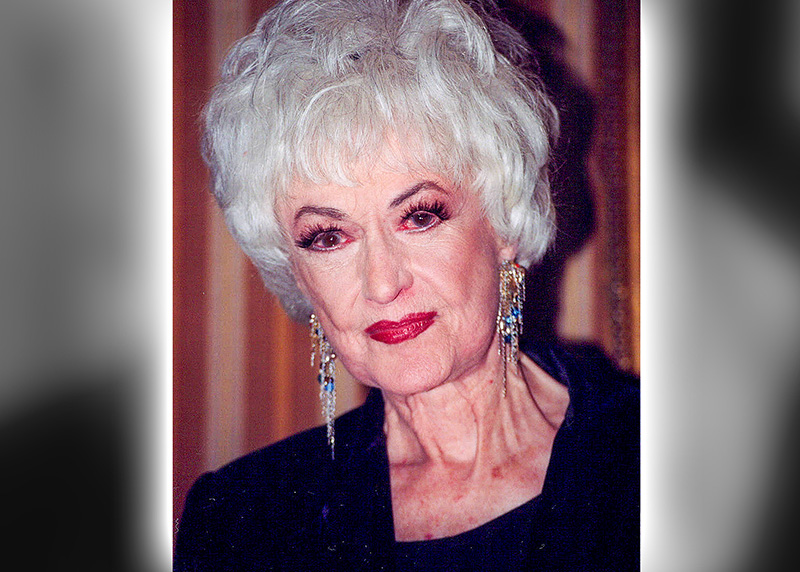DC Trans Coalition Calls Task Force a ''Publicity Stunt''
With assessment yet to be completed, DCTC alleges group analyzing police response to hate crimes is biased
The DC Trans Coalition (DCTCT) submitted testimony to the D.C. Council’s Committee on the Judiciary and Public Safety Wednesday alleging that an external review by the Anti-Defamation League (ADL) analyzing how the Metropolitan Police Department (MPD) responds to hate crimes has demonstrated bias in favor of MPD, thereby compromising its independence.
In its testimony, DCTC referenced more than 1,500 pages of MPD Chief Cathy Lanier’s emails – obtained through a Freedom of Information Act (FOIA) request last year – that pertained to the ADL task force reviewing MPD’s response to hate crimes.
Lanier announced the implementation of the task force last year after months of ongoing public arguments between MPD and DCTC and other LGBT-affiliated community groups regarding police response to crimes apparently motivated by anti-LGBT sentiment. The task force served as an alternative to action preferred by LGBT community activists, who had requested that MPD enter into mediation talks with them. Under the activists’ proposal, the Community Relations Service of the U.S. Department of Justice would serve as the mediator.
The relationship between MPD and some LGBT groups has long been rocky. Aside from complaints about the department’s response to hate crimes, including its willingness to classify crimes as bias-motivated before handing such cases to the U.S. Attorney’s Office for the District of Columbia, the community groups have raised other issues that some claim MPD has not taken seriously.
One such issue involves possession of condoms allegedly being used as evidence when MPD officers are arresting people suspected of attempting to engage in sex work – something MPD and Councilmember David Catania (I-At Large) have denied occurs in the District. Others have raised questions about the status of a Harvard University grant given to MPD in 2006 to expand the work of MPD’s Gay and Lesbian Liaison Unit (GLLU); the implementation of MPD’s general order on police interactions with transgender individuals; and the designation of ”prostitution-free zones,” which critics say have resulted in police harassing or profiling transgender individuals.
After obtaining Lanier’s task force-related emails, DCTC in its testimony highlighted exchanges between Lanier and David Friedman, director of the ADL’s Washington, D.C., regional office and head of the task force. The testimony points to Friedman and Lanier discussing her high approval rating, as measured by a Clarus poll. In one exchange, Friedman told Lanier, ”Wouldn’t worry. The only people who don’t like you have outstanding warrants.”
DCTC said in its testimony that other emails show Lanier was asked to approve potential members of the ADL-led review team, compromising the task force’s independence.
”In short, the ADL hate crimes review task force has proven itself to be both insufficient to address community concerns, and blatantly biased against us,” DCTC concluded. ”We do not relish conflict between our communities and MPD. Yet, due to a persistent failure to listen openly to our concerns, conflict persists, and the day-to-day lives of trans people in D.C. are endangered as a result. Our concern is that the ADL-led task force is a publicity stunt rather than a good faith effort at making progress.”
MPD and ADL both objected to DCTC’s characterization of the email exchanges between Friedman and Lanier, and insisted that the task force’s impartiality has not been compromised.
”We are confident that members of the team are conducting an independent review,” Gwendolyn Crump, director of MPD’s Office of Communications told Metro Weekly in an emailed statement. ”It is a shame that the DC Trans Coalition is attacking the work of this group before they even issue their report and recommendations.”
In an interview with Metro Weekly, Friedman said he had read DCTC’s testimony and objected to the allegations of bias on the part of the ADL.
”There is nothing in that testimony that should create doubt in anyone’s mind about the integrity of the task force,” Friedman said.
He added that although he and Lanier knew one another prior to the formation of the task force, he never attempted to hide that fact. Furthermore, he said, in his job, he needs to maintain relationships with various police chiefs in departments around the country.
”There is no doubt in my mind that [Lanier] would not have asked me to do this if she thought I could be compromised,” Friedman said. ”The work of the task force will speak for itself. Anyone who thinks the task force will not be fair needs to wait until they see our results.”
Support Metro Weekly’s Journalism
These are challenging times for news organizations. And yet it’s crucial we stay active and provide vital resources and information to both our local readers and the world. So won’t you please take a moment and consider supporting Metro Weekly with a membership? For as little as $5 a month, you can help ensure Metro Weekly magazine and MetroWeekly.com remain free, viable resources as we provide the best, most diverse, culturally-resonant LGBTQ coverage in both the D.C. region and around the world. Memberships come with exclusive perks and discounts, your own personal digital delivery of each week’s magazine (and an archive), access to our Member's Lounge when it launches this fall, and exclusive members-only items like Metro Weekly Membership Mugs and Tote Bags! Check out all our membership levels here and please join us today!
























